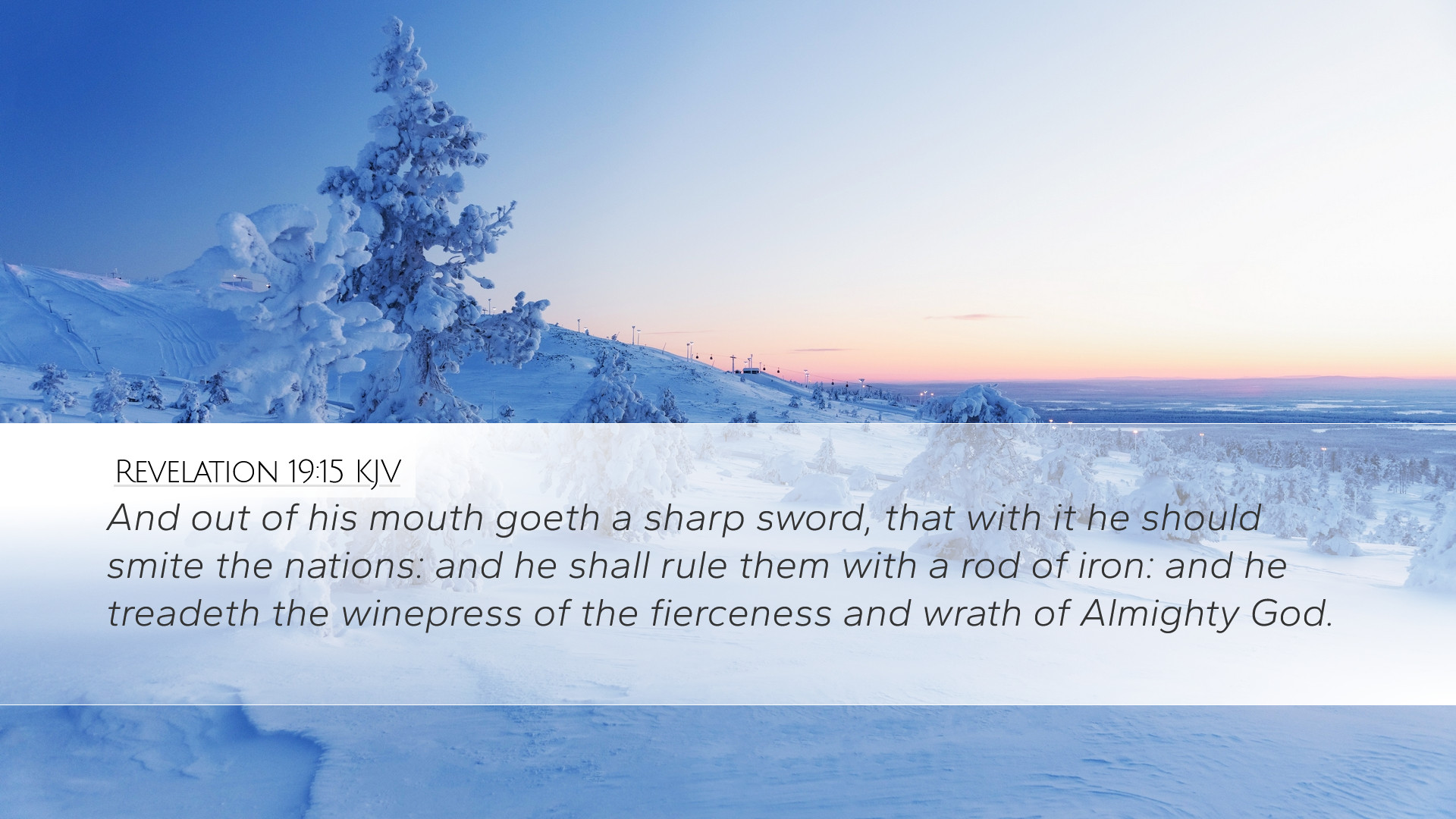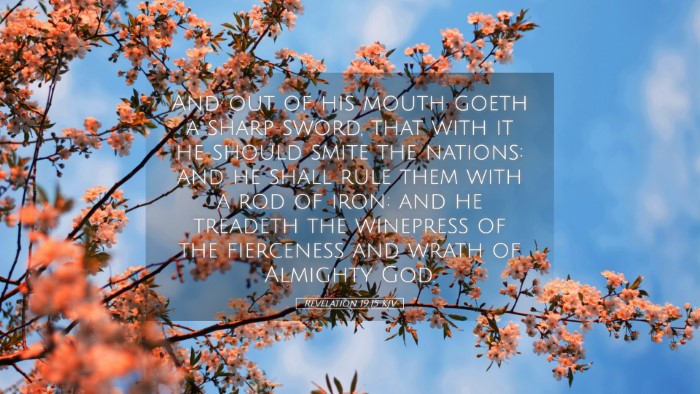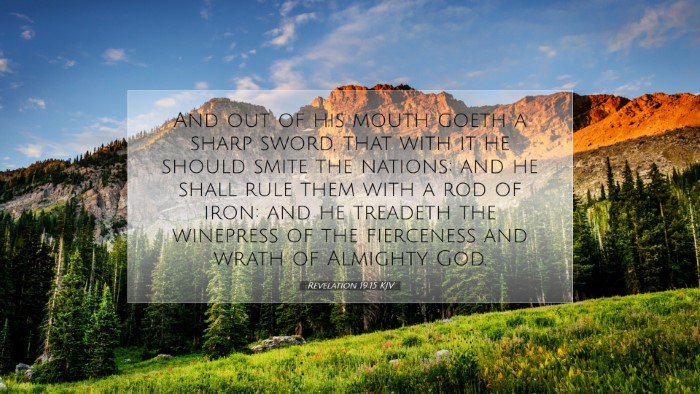Commentary on Revelation 19:15
Verse Reference: Revelation 19:15 - “And out of his mouth goeth a sharp sword, that with it he should smite the nations: and he shall rule them with a rod of iron: and he treadeth the winepress of the fierceness and wrath of Almighty God.”
Introduction
This verse from the Book of Revelation presents a vivid and dramatic image of Christ, the victorious King, returning in glory to judge the nations. The use of symbolic language reveals profound theological truths about divine authority, judgment, and the character of Christ. In this commentary, we will explore insights from notable public domain scholars, including Matthew Henry, Albert Barnes, and Adam Clarke, to unpack the richness of this passage.
Analysis of Key Themes
-
The Symbolism of the Sword
Henry notes that the "sharp sword" represents the word of God, which is effective in judgment and can cut through to the intentions of the heart (Hebrews 4:12). This emphasizes the authority and decisiveness with which Christ speaks over the nations at His return.
Barnes echoes this, highlighting how the sword symbolizes the power of divine truth, which will bring to bear the justice of God against all who oppose Him. This serves as a reminder of the ultimate authority of Christ in both the spiritual and temporal realms.
-
Judgment of the Nations
This verse represents a climactic scene where Christ will execute judgment upon the nations. Clarke points out that the phrase “smite the nations” suggests a definitive act of retribution where injustices will be set right. It also hints at the end of human history where Christ establishes His rule over all nations.
Furthermore, Henry reflects on the finality of this judgment, where His authority silences all opposition. The nations are reminded that their rebellion against God will not stand, as He brings peace through justice.
-
Christ's Sovereign Rule
“He shall rule them with a rod of iron” signifies a reign of power and authority. Barnes describes this imagery as fulfillment of God's promise that Christ will establish His Kingdom, characterized by righteousness and justice. The “rod of iron” symbolizes strength that enforces His rule, indicating that this is not a gentle governance but one that decisively addresses sin and wickedness.
Clarke adds that this promise echoes Psalm 2, where the nations are warned that rebellion against God will lead to certain destruction, emphasizing Christ’s sovereignty as inescapable.
-
The Winepress of God's Wrath
The phrase “He treadeth the winepress of the fierceness and wrath of Almighty God” conjures imagery of divine judgment. Henry interprets this as a graphic representation of the severity of God's wrath against sin, reminiscent of how grapes are crushed to extract juice, symbolizing the destruction that awaits unrepentant hearts.
Barnes explains that this metaphor indicates there is a price for sin, and God’s mercy will not be extended forever. The language echoes the Old Testament prophecies about God’s judgment, linking the fierce wrath of God with the covenantal faithfulness He demands.
Theological Implications
This verse is laden with significant theological implications for believers and the world at large. It speaks to the sovereignty of Christ as King and Judge, and the certainty that all will be held accountable before Him. This passage serves as a source of hope for the faithful and a stern warning for those outside of God’s grace.
Henry rightly notes that the vision laid out in Revelation 19 brings comfort to the church, reminding them that their struggles are temporary. Christ's eventual victory is assured, reinforcing the belief that evil will not have the final say.
Barnes stresses the importance of understanding God's wrath as a response to sin, and not as arbitrary anger. It is a righteous indignation that arises from His holiness. Thus, the language of judgment here compels a call to repentance and delivers a strong message about the character of God’s justice.
Clarke concludes that as Christians reflect on this scripture, they are invited to recognize the duality of Christ’s nature—not only as Savior but also as a coming Judge. This compels believers to live in light of His return and to witness boldly to the truth of the Gospel.
Conclusion
Revelation 19:15 serves as a powerful reminder of Christ’s ultimate authority and the seriousness of divine judgment. The insights from these commentaries illuminate the rich theological truths embedded in this text and call us to live in reverence of God’s sovereignty. In a world increasingly resistant to God’s truth, the verse challenges pastors, theologians, and all believers to adhere to and proclaim the authority of Christ, reminding us that His return is not merely a hopeful future event but a certain reality that should instill both fear and awe.


